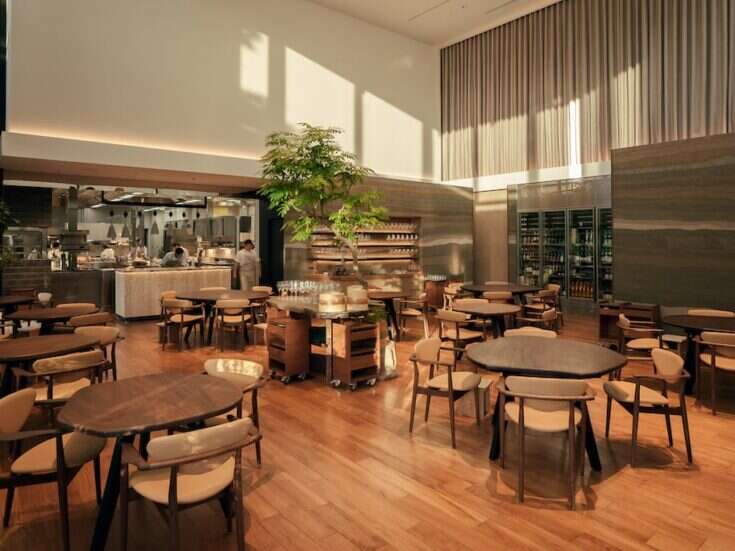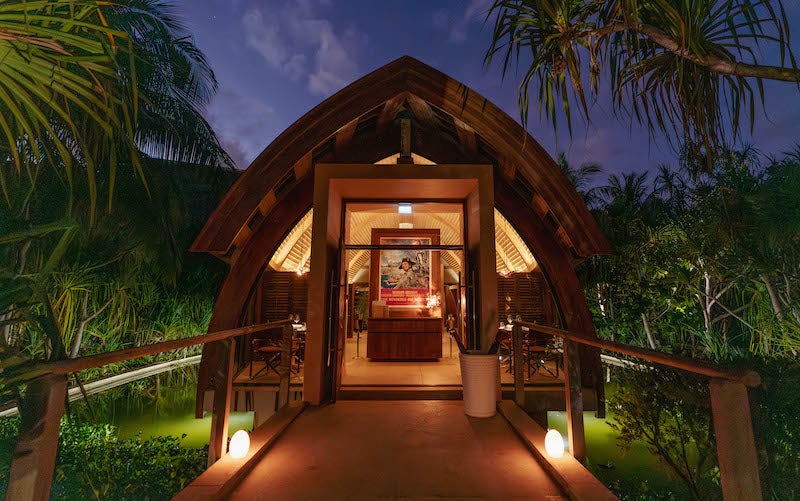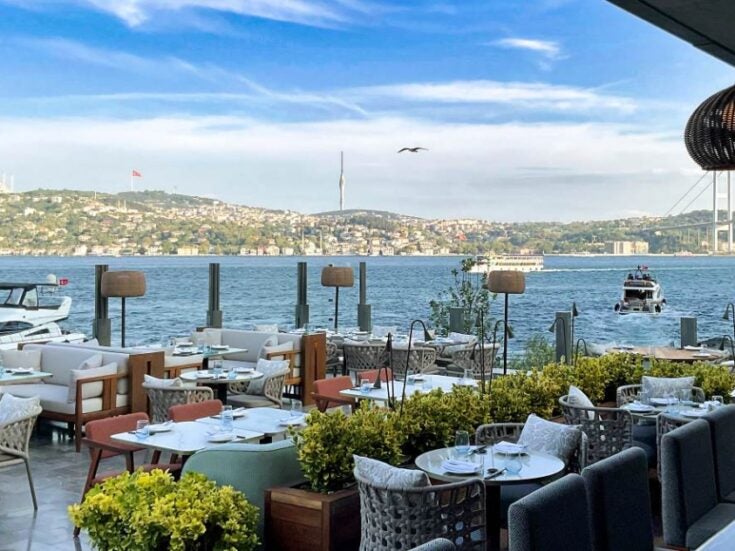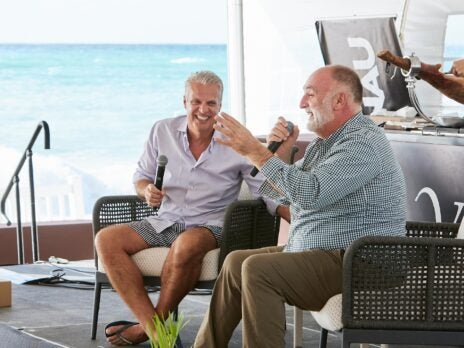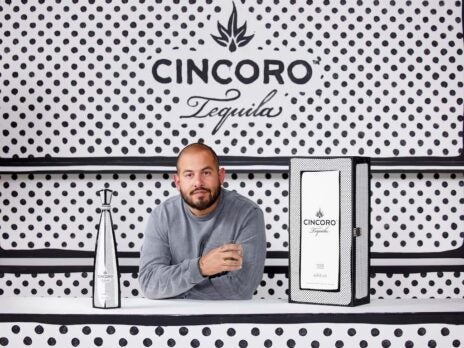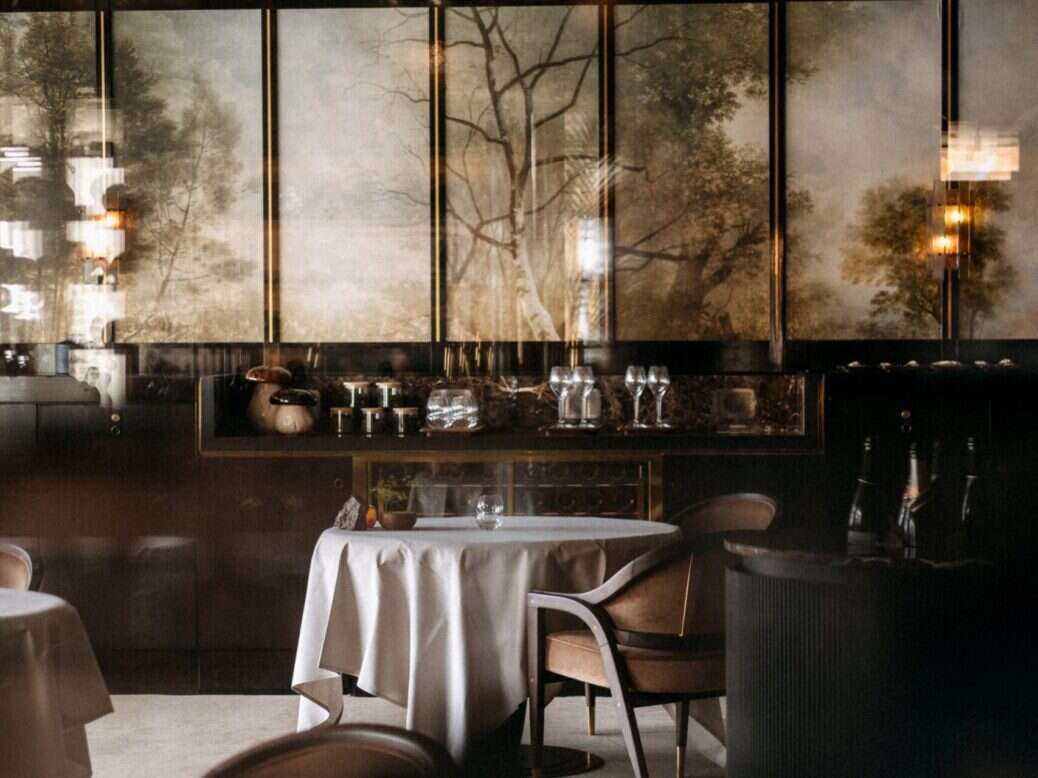
In the heart of Amsterdam, where there are more bikes than people, and where it’s estimated that over half of all journeys take place on two wheels, it is no surprise to find a restaurant like Flore – recipient of two Michelin stars, and a green star to boot.
The latest iteration of Hotel De L’Europe’s fine dining offering is a sustainable extravaganza, filled to the brim with enthusiastic staff and locally sourced, carefully considered cuisine. Flore was awarded its stars just nine months after opening, bringing palpable relief among staff. Such relief is understandable when you consider the risks involved in a total overhaul of an established, Michelin-starred, successful restaurant within one of the best hotels in the city.
But the team behind Flore (formerly Bord’Eau), led by executive chef Bas van Kranen felt compelled and inspired to reimagine their fine dining offering with sustainability and creativity at its core. Alongside Wouter Denessen, the dazzling, passionate and organic-wine-obsessed maître, Van Kranen has created an experiential dining journey like no other.
Notes for the reader: Firstly, make sure you’ve got plenty of time on your hands – the experience can take up to five hours and has a few surprises along the way too (don’t worry, we have no intention of spoiling them). Secondly, the menu changes weekly, based on the foraged finds of the team’s regular journeys into the stunning Dutch hinterland, so what you read here is purely illustrative and aims to give you a flavor of some of the culinary wonders that you’ll experience.
[See also: Le Clarence: Modern Cuisine in a Classical Setting]
Chef
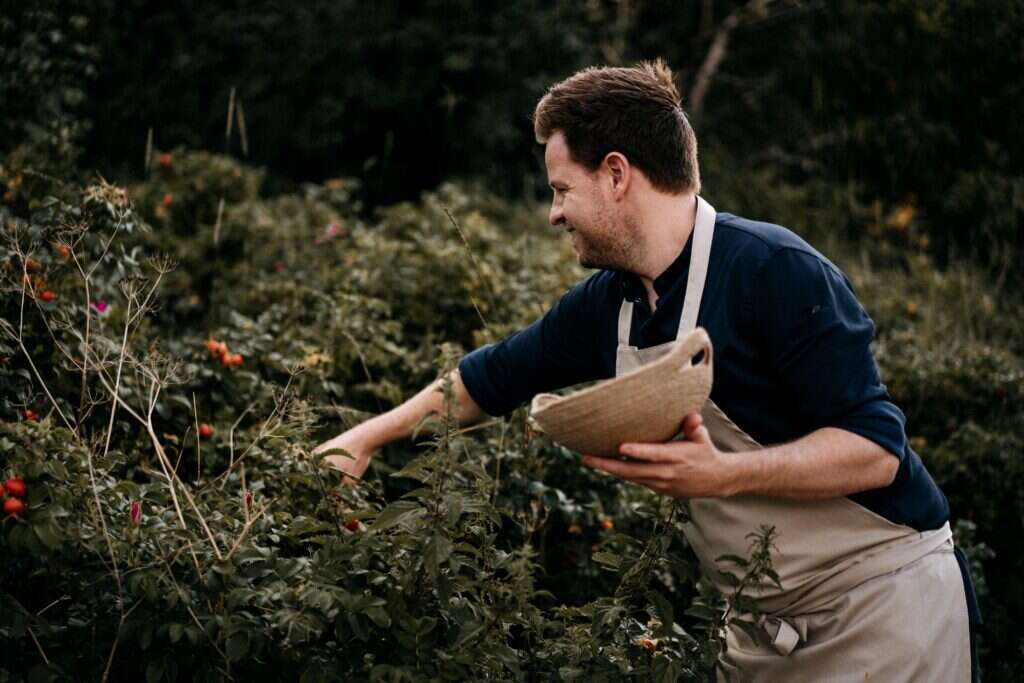
Van Kranen has gathered a team of dedicated foodies around him. Without exception, the wait staff are elegantly bilingual and are able to eloquently detail each dish with real passion and extraordinary depth of knowledge. He certainly doesn’t rest on his laurels and isn’t afraid to shake things up (which his overhaul of Bord’Eau testifies to).
Van Kranen spent the summer of 2022 on an inspirational tour of Mexico where he explored ancient Mexican ingredients and traditions. He even experimented with fermentation in the jungle (apparently the humidity creates perfect conditions). The flavors, spices, traditions, techniques and ingredients used during his pop-up in Yucatan will surely influence the ever-evolving menu in innovative and exciting ways.
[See also: La Mirande: A Timeless French Restaurant with Modern Appeal]
Menu
All the ingredients that make their way to your plate (and trust me there are many) have been sustainably sourced from local biodynamic farms wherever possible. There are two options – the Signature menu and the vegetarian Botanical menu – each consisting of eight different courses.
There are subtle Japanese nods woven into the dishes throughout the evening, which is also reflected in the restaurant’s decor. The Signature menu balances delicate vegetable dishes with unexpected, and often overlooked, meaty morsels in the form of whelk, cuttlefish, razor clam and snail.
The cuttlefish noodles were a highlight and the level of the nose-to-tail mentality was evident in every aspect. Name another restaurant that uses the leftover sardine bone from one course for a broth for another.
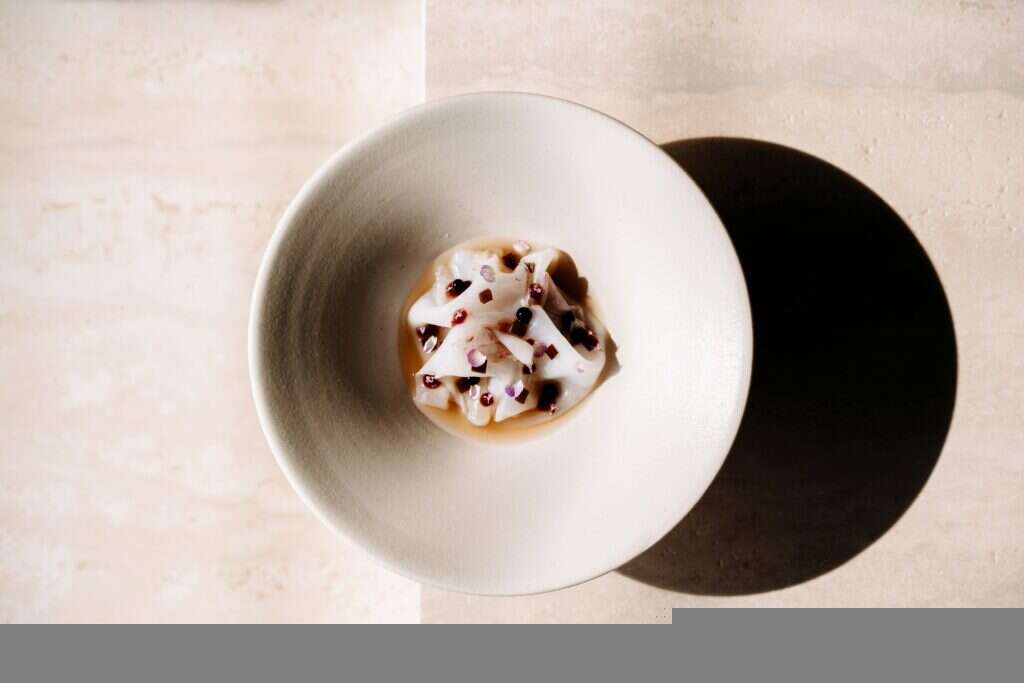
Smoked Kingfish, a white yellowfin tuna that is farmed in nearby Zeeland, is dried before being roasted and served with a mussel gravy. Whelk is grilled and garnished with pickled rose petal, green strawberries and seaweed. The razor clam is cooked at three different temperatures and is served with a verbena sauce.
The Botanical menu offers seaweed, mushrooms, and ancient grains finished with fruity bursts. Yellow beet with saffron and buckwheat tempeh are the stars of the show. Flore’s signature dish, again only a morsel-sized offering, is composed of a staggering 25 seasonal, local vegetables, crowned with an almond and horseradish foam. It is delicate and incredibly complex, presented behind a mask of simplicity.
Did I mention these guys are serious about sustainability? The menu even features old bread… the team recycles leftover sourdough to create tortellini filled with Jerusalem artichokes. And it’s delicious.
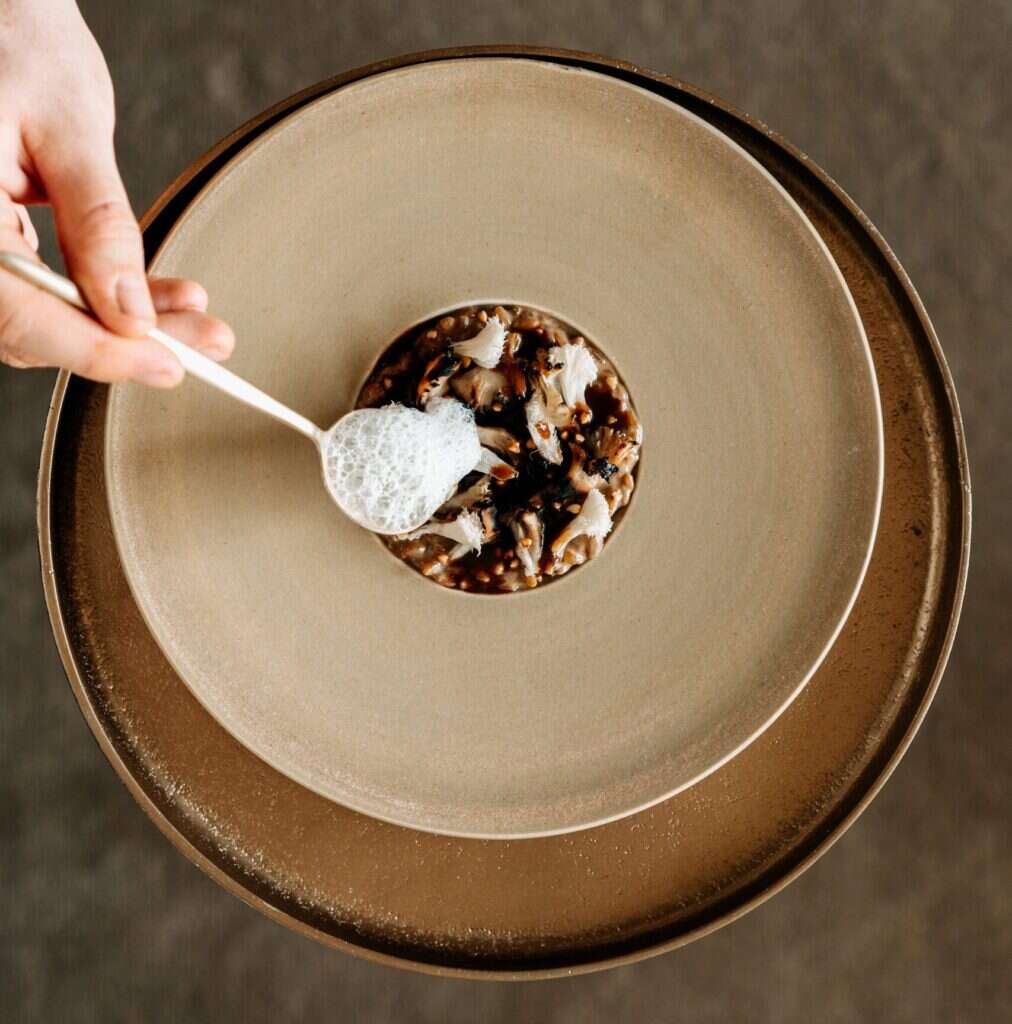
Fermentation is something that the team at Flore are passionate about. During lockdown they were taught the basics and quickly built their own fermenting room that is now pickle-packed with experimental jars of tasty treats that last all season.
Both menus round off with a serious alcohol kick. Kever Genever was the predecessor to gin and is the origin of the term, “Dutch Courage”… served with lemon sorbet, it’s a refreshing way to cleanse your palette.
Before you head happy and sated to your bed. If you’re lucky enough to be staying in one of the suites at De L’Europe, try the boozy gummy bear and baby pinecones. The team pick and soak them in cherry liquor before they harden.
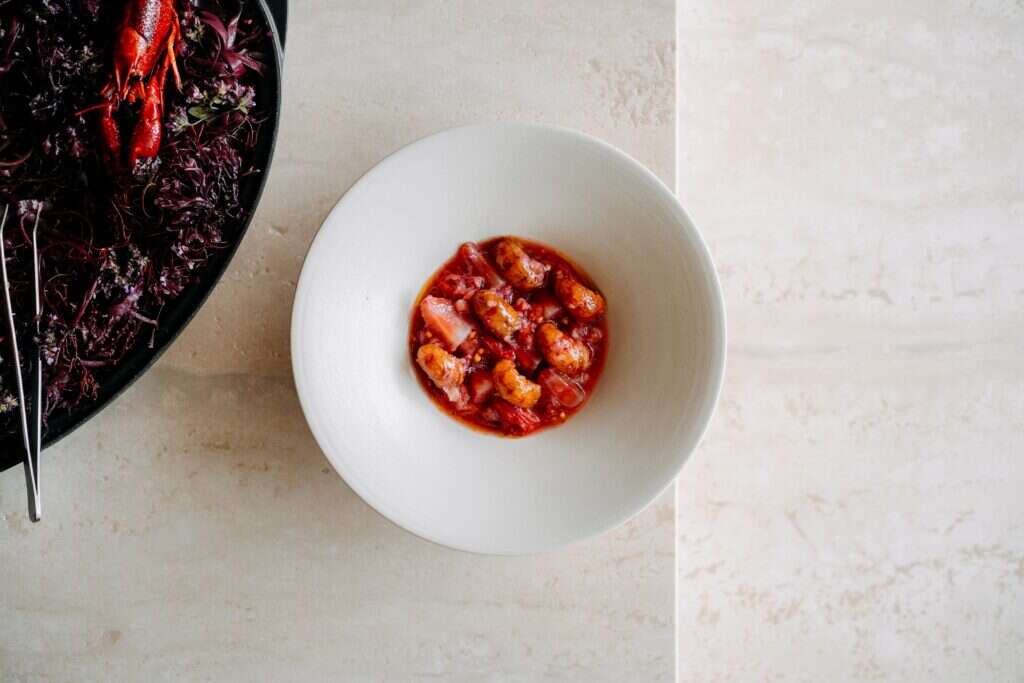
Wine
Wouter is an incredible maître, with a real passion for all things organic and a mischievous ability to tempt you out of your comfort zone. There is a Wine List and a Wine Book at the restaurant. The List has been curated in the ethos of the restaurant with sustainable and organic options paired with the menu. The Book offers creature comforts to those who’d prefer their reliable winners. But take Wouter’s advice seriously and you won’t be disappointed.
For those that aren’t in the mood for the humble grape, Flore has a juice paired menu. Made in house in the fermentation lab, there are 12 juices all expertly crafted and paired with each stage of the menu. Enjoy the rhubarb and pinecone, before moving on to a smokey fig and cherry kombucha with jasmine.
Interiors
The restaurant is limited to 11 tables. It feels intimate but not crowded and our corner banquette invited hushed conversations and cozy chats. You’re situated on the Amstel River, and the closeness to the water, alongside ethereal artwork creates a calmness away from the bustle of the city center. The interiors were created by Nicemakers, who worked on De L’Europe’s interiors too, and the energy flows seamlessly between the two.
